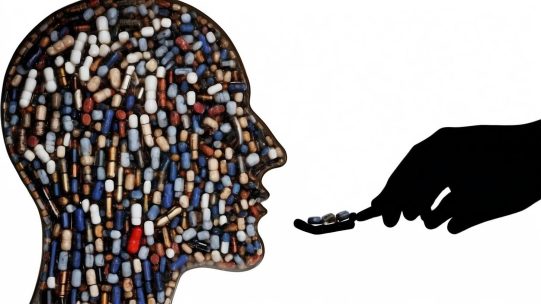Women have a harder time adjusting to divorce and separation than men do

Women may have a harder time psychologically adjusting to divorce and bereavement than men, as evidenced by data on antidepressant use, according to a large long-term study published online in the Journal of Epidemiology & Community Health.
Both men and women were more likely to use antidepressants immediately before and after divorce, separation and bereavement, although women used them more often than men. Remarriage was also associated with a slight decrease in antidepressant use for both men and women, but over a shorter period of time, especially for women, the study said.
Population aging led to an increase in “gray divorce” after age 50 in high-income countries, which in turn led to an increase in remarriage, the researchers said.
Depression in late life is also relatively common, with an estimated 10-15% of people aged 55 and older experiencing clinically significant depressive symptoms, the researchers add. However, few studies have examined the psychological impact of divorce, relationship breakdown, bereavement and new relationships on antidepressant use in late life.
Therefore, the researchers decided to track antidepressant use patterns from 1996 to 2018 among 228,644 older Finns aged 50-70 who had experienced divorce, relationship breakdown or bereavement.
Results showed that 85,031 people (37%) stopped living with their partner due to bereavement, 75,009 people (33%) divorced, and 68,604 people (30%) stopped living with their partner due to relationship breakdown. Subsequently, 53,460 people on average entered a new relationship within two to three years: 31,238 after a break-up, 15,958 after divorce and 6,264 after the death of their partner.
Men were more likely than women to remarry after a bereavement or breakup. No clear gender differences were found for remarriage after divorce.
For men and women whose partner died, antidepressant use increased in the four years and one year before the death and rose sharply in the three months before and three months after: just under 5.5% for men and nearly 7% for women. Subsequently, use declined but still remained higher than before.
Similarly, antidepressant use increased in the six months before divorce among both men and women: 5% for men and 7% for women. The rate declined for both sexes immediately after divorce and stabilized after one year. However, the rate remained higher than before the divorce.
Women who experienced a breakup significantly increased their antidepressant use in the four years preceding the breakup. Men also increased their antidepressant intake, but to a much lesser extent: 6% of women compared to just over 3% of men.
After one year, antidepressant use dropped to the level of the 12 months before the breakup and remained at that level for men. For women, however, it was different: antidepressant use declined slightly shortly after the breakup and then increased again during the first year.
Partial recovery and further increases in [antidepressant] use are not a good sign ……. The researchers explain that “the loss of a partner results in stressful changes in life circumstances (e.g., reduced family income, loss of social support) that appear to support the couple’s resource model, which suggests that these changes persist or accumulate over time.”
“The resource model still seems more applicable to women who left cohabitation than to men.
There was a small decrease in [antidepressant] use at remarriage, but it was short-lived and either returned to the level observed before remarriage or remained even higher two years after remarriage. Gender role differences may help explain women’s more severe mental health outcomes, but women tend to have better social networks than men, which helps mitigate some of these effects, the researchers suggest.
The higher [antidepressant] use associated with union dissolution for women in this study may be due to the fact that the mental health costs of union dissolution fall more heavily on women than on men,” the researchers wrote.
The smaller reduction in [antidepressant] use associated with remarriage in women than in men may be related to an explanation that marriage provides more mental health benefits for men than women and that older men are more likely than women to seek emotional support in remarriage.”
The researchers add: “In addition, women may have greater responsibility for managing interpersonal relationships in blended families, including their partner’s relationship with children, which may undermine their mental health.”
As this is an observational study, it is not possible to ascertain its causes. The researchers also recognize various limitations in their findings, such as the inability to account for the number and duration of partner relationships. Family support networks and living arrangements may also have some bearing on the use of these drugs.
Nevertheless, the researchers conclude, “Our findings suggest difficulties in adjusting to partnership dissolution in late life and the associated need for support.”










Comment